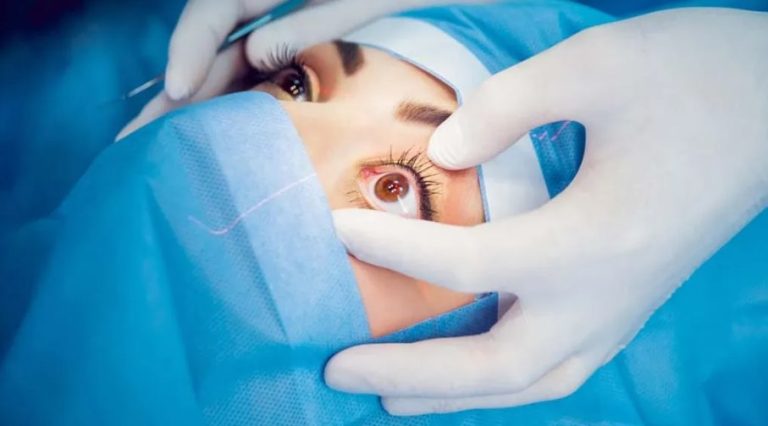Allergy Test in Singapore – Everything You Need to Know
Food allergies are becoming increasingly common in Singapore, affecting both children and adults. These allergies can range from mild discomfort to life-threatening anaphylaxis. Identifying the foods that trigger allergic reactions is crucial for maintaining good health and preventing severe consequences.
A food allergy test is the first step in managing food allergies effectively. In Singapore, several medical facilities offer reliable testing options to help individuals identify their allergens. This article will cover everything you need to know about food allergy tests in Singapore, including types of tests, where to get tested, costs, and managing allergies.
Understanding Food Allergies
A food allergy occurs when the immune system mistakenly identifies a certain food as harmful, triggering an allergic reaction. Symptoms can range from mild itching to severe breathing difficulties and even anaphylaxis.
Food Allergy vs Food Intolerance
Many people confuse food allergies with food intolerances. However, these are two distinct conditions:
- Food Allergy: Involves the immune system and can cause severe reactions. Even a small amount of the allergen can trigger symptoms.
- Food Intolerance: Affects digestion and does not involve the immune system. Symptoms include bloating, gas, and stomach discomfort but are not life-threatening.
Common Food Allergens in Singapore
Singapore has a diverse food culture, making it essential to be aware of common food allergens:
- Nuts and Peanuts – Found in many local dishes, sauces, and snacks.
- Shellfish and Seafood – A major allergen, especially in a seafood-loving country like Singapore.
- Dairy Products – Common in beverages and desserts.
- Eggs – Used in many traditional dishes and baked goods.
- Soy and Wheat – Present in soy sauce, noodles, and many processed foods.
Why You Should Get a Food Allergy Test?
Getting a food allergy test in Singapore can help you:
- Identify the foods causing your allergic reactions.
- Prevent severe allergic reactions and hospital visits.
- Improve your overall well-being by avoiding allergens.
Types of Food Allergy Tests Available in Singapore
There are several methods available for diagnosing food allergies:
- Skin Prick Test (SPT) – A small amount of the allergen is placed on your skin, and a tiny needle is used to prick it. A reaction indicates an allergy.
- Blood Test (IgE Antibody Test) – Measures the level of IgE antibodies in your blood to detect allergies.
- Oral Food Challenge – Conducted under medical supervision, you consume the suspected allergen to observe reactions.
- Patch Testing – Used for delayed allergic reactions, patches with allergens are applied to the skin.
Where to Get a Food Allergy Test in Singapore?
You can get tested at:
- Hospitals and Medical Centres – Such as Singapore General Hospital (SGH) and National University Hospital (NUH).
- Private Clinics and Allergists – Many specialised clinics offer allergy testing.
- At-Home Test Kits – Available but may not be as accurate as clinical tests.
Cost of Food Allergy Tests in Singapore
The cost of food allergy tests varies:
- Skin Prick Test – SGD 100–300
- Blood Test – SGD 200–500
- Oral Food Challenge – SGD 500+
Insurance may cover some tests, depending on your policy.
What to Expect During a Food Allergy Test?
- Preparation: Avoid antihistamines before testing.
- Procedure: Takes 15-60 minutes, depending on the test type.
- Side Effects: Some mild swelling or discomfort may occur.
Interpreting Allergy Test Results
- Positive Result: Indicates an allergy to a specific food.
- Negative Result: Means no allergic reaction was detected.
- False Positives/Negatives: Sometimes tests may not be 100% accurate.
Managing Food Allergies After Testing
- Avoid allergens and read food labels carefully.
- Find alternative foods to replace allergenic ingredients.
- Carry an epinephrine auto-injector if you have severe allergies.
When to See a Doctor for Food Allergies?
If you experience severe symptoms such as breathing difficulties, swelling, or dizziness, seek medical attention immediately.
Best Allergy Clinics and Specialists in Singapore
- Raffles Medical Group
- Parkway East Hospital
- Mount Elizabeth Medical Centre
Natural Remedies and Alternative Treatments
- Probiotics can help strengthen gut health.
- Acupuncture may help regulate immune response.
FAQs About Food Allergy Tests in Singapore
1. How accurate are food allergy tests?
Most tests are reliable, but false positives or negatives can occur.
2. Can food allergies develop later in life?
Yes, food allergies can develop at any age.
3. Are at-home food allergy tests reliable?
They can provide some insights but are not as accurate as clinical tests.
4. What should I do if I test positive for multiple allergies?
Consult an allergist for a tailored dietary plan.
5. Can allergy tests detect food intolerances?
No, food intolerance tests require different diagnostic methods.

